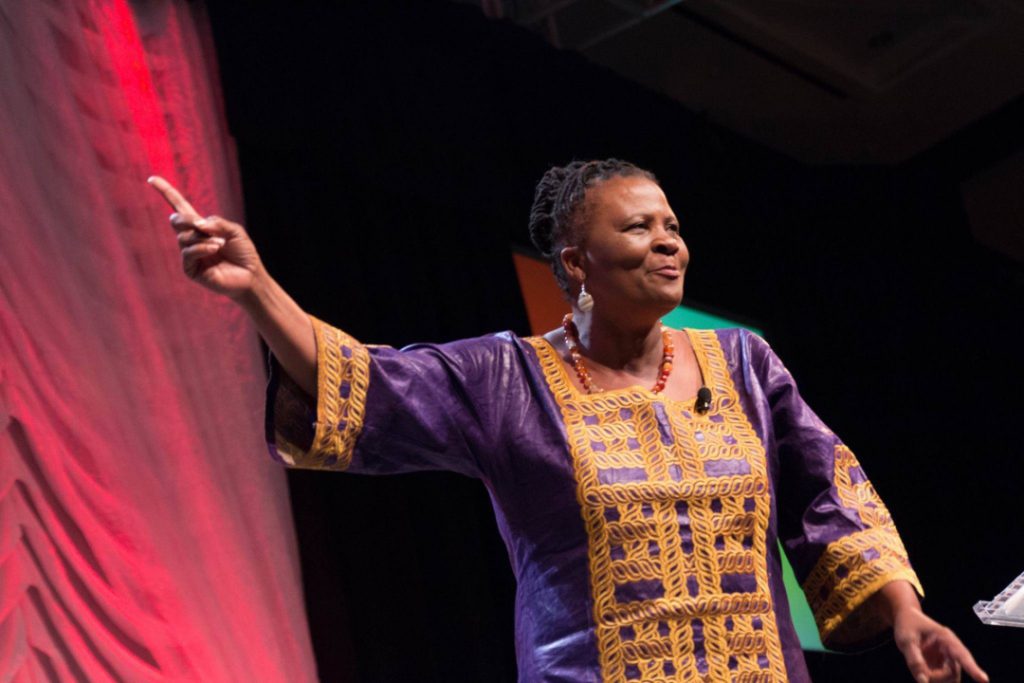
The question I’ve been asked the most is, “So, how’d you get started?” It pops up during podcast interviews, at networking meetings, and even after I simply say my job title. People want to know the story behind the entrepreneur.
Amplify the impact of your story
The answer to “How did you get started?” is in your origin story. An origin story describes the history and motivation behind why you started your business. It is a communication tool packed with the power to help you build relationships and inspire. This story will grow with your company.
Told right, your origin story shows your audience that you care about your business and, by extension, that you care about them. It shows your investment.
Invest in your audience
In the seventh grade my hopes of becoming a scientist, doctor or astrophysicist were dashed. My math teacher showed up late for class most days and often cut our classes short. His disinterest in the subject was clear, and because he didn’t care, we didn’t either. I think everyone’s math grade dropped that year. After all, if our teacher wasn’t invested, why would we be invested?
This is how relationships work: If our partner doesn’t invest in us, why would we invest in them? Entrepreneurship is a series of growing and expanding relationships, and so any time we speak to our audience, it is imperative we show our investment in them. Whether you are speaking with the intent to educate, sell or motivate, your audience will only invest to the degree that you do.
Three ways your origin story shows your audience that you care
- It depicts a time when you were motivated and took action. By showing yourself as a motivated, action-based person, you show your personal investment in your idea, your business and your audience. This type of origin story is inspirational.
- It describes what inspired you to start a business that would solve problems for your audience. What is key about origin stories is that instead of being as direct as most business stories (which feature members of your audience as the main character), you are the star. This gives you the ability to talk about how committed you are to solving problems for your audience in a less direct or sales-y way.
- It reveals a bit about you. A good origin story is the perfect blend of you and your business, and it builds a relationship between you and your audience. Sharing a bit of yourself is a way of investing in your audience. Your personal vulnerability (sharing) is an extension of trust, and trust engenders more trust.
Trust and credibility go hand in hand. This is exactly what was lost when my math teacher failed to show me that he was committed to our class or even to the study of math. While my math career ended quickly, my storytelling career took off and my first storytelling coach solidified my investment in storytelling.
My coach’s reputation preceded her. Her origin story was known throughout my community and so when I decided to begin storytelling, calling her was a no-brainer. She was direct and outcome-focused but still took the time to tell her story. I remember the day she told me about how her career began in voice and how she toured Europe as a teenager singing in the 1960s. I was inspired. She then described her transition from voice to acting and then storytelling and starting her own business. She inspired me. She was relatable. I wanted to be like her.
Soon I was practising four hours a day and winning competitions. My success was propelled by my coach’s instruction, but also her story. Her story was a natural extension of her work. Storytelling is a powerful way to communicate. Stories carry images and emotion in ways that the simple sharing of facts and information does not. By sharing your origin story, you will build your reputation, grow your relationships and inspire the success of your audience by showing you care.
Photo Credit : Google

